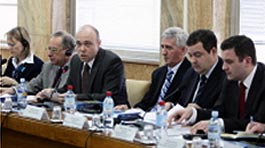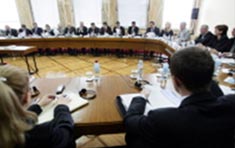- 2021
- December (1)
- March (87)
- February (60)
- January (35)
- 2020
- December (109)
- November (111)
- October (109)
- September (114)
- August (22)
- July (129)
- June (116)
- May (93)
- April (106)
- March (114)
- February (53)
- January (31)
- 2019
- December (37)
- November (72)
- October (52)
- September (43)
- August (65)
- July (55)
- June (14)
- May (55)
- April (72)
- March (28)
- February (1)
- January (12)
- 2018
- December (49)
- November (45)
- October (44)
- September (31)
- August (61)
- July (46)
- June (48)
- May (33)
- April (61)
- March (53)
- February (45)
- January (50)
- 2017
- December (46)
- November (56)
- October (60)
- September (20)
- August (56)
- July (61)
- June (58)
- May (28)
- April (44)
- March (57)
- February (54)
- January (42)
- 2016
- December (55)
- November (70)
- October (73)
- September (24)
- August (50)
- July (47)
- June (61)
- May (19)
- April (48)
- March (47)
- February (33)
- January (45)
- 2015
- December (43)
- November (39)
- October (53)
- September (55)
- August (19)
- July (47)
- June (28)
- May (26)
- April (54)
- March (55)
- February (29)
- January (30)
- 2014
- December (26)
- November (48)
- October (44)
- September (30)
- August (28)
- July (30)
- June (23)
- May (53)
- April (30)
- March (25)
- February (31)
- January (16)
- 2013
- December (23)
- November (29)
- October (34)
- September (12)
- August (15)
- July (23)
- June (12)
- May (24)
- April (12)
- March (14)
- February (22)
- January (15)
- 2012
- December (16)
- November (30)
- October (28)
- September (4)
- August (14)
- July (15)
- June (3)
- May (5)
- April (7)
- March (14)
- February (8)
- January (9)
- 2011
- December (8)
- November (17)
- October (17)
- September (16)
- August (11)
- July (14)
- June (8)
- May (16)
- April (12)
- March (20)
- February (11)
- January (7)
- 2010
- December (3)
- November (8)
- October (18)
- September (19)
- August (12)
- July (16)
- June (21)
- May (15)
- April (12)
- March (15)
- February (22)
- January (11)
- 2009
- December (13)
- November (16)
- October (10)
- September (12)
- August (5)
- July (15)
- June (15)
- May (9)
- April (15)
- March (6)
- February (14)
- January (6)
- 2008
- December (9)
- November (5)
- October (2)
- September (2)
- August (1)
- July (1)
- June (1)
- April (4)
- February (1)
- January (3)
- 2007
- December (1)
- November (2)
- October (6)
MARKING TWO YEARS FROM THE SIGNING OF THE AGREEMENT ON THE PRINCIPLES OF RECONSTRUCTION OF THE COORDINATION BODY
 On Monday, March 28, 2011, a formal session of the Coordination Body’s Presidency was held in order to mark two years from reconstruction of the Coordination Body. The signing of the said agreement is extremely important for the southern Serbian municipalities because representatives of the Albanian community were, thereby, reengaged in the Coordination Body’s work.
On Monday, March 28, 2011, a formal session of the Coordination Body’s Presidency was held in order to mark two years from reconstruction of the Coordination Body. The signing of the said agreement is extremely important for the southern Serbian municipalities because representatives of the Albanian community were, thereby, reengaged in the Coordination Body’s work.
Apart from Minister Milan Markovic, President of the Coordination Body, and members of the Coordination Body’s Presidency, the formal session was attended by Ivica Dacic, Deputy Prime Minister and Minister of Interior, Nebojsa Ciric, Minister of Economy and Regional Development, Zoran Kostic, Assistant Minister of Education, Predrag Petronijevic, Director of the Tax Administration, Dragutin Radosavljevic, Director of the Customs Administration, Vladan Cvetkovic, Director of the Privatization Agency and Nenad Djurdjevic, Director of the Directorate for Human and Minority Rights.
Also attending the session were the Coordination Body’s international partners that are supportive of its work, and they included Dimitrios Kypreos, Head of the OSCE Mission to Serbia, Vincent Degert, Head of Delegation of the EU to Serbia, William Infante, UN Resident Coordinator in Serbia, Mary Warlick, US Ambassador to Serbia and Michael Davenport, British Ambassador to Serbia.
The session was an opportunity to hear what had been done over the previous two years regarding improvement in the quality of lives of South Serbia’s residents.
Minister Milan Markovic pointed out that a lot had been done in the previous period, “primarily in the spheres of judiciary, education and integration of the Albanians in the Republican institutions”. He also said that a great deal had been done in the fields of politics, economy and education, but mostly in the fields of establishment of multiethnic government in Bujanovac and in the of opening the “Lece” mine and a department of Nis University’s Faculties of Economy and Law in Medvedja.
”We expect that the works on an out-patient maternity hospital in Presevo will be brought to an end this year and that a department of the Faculty of Economics will be opened in Bujanovac”, Minister Markovic said.
According to him, a lot was invested in the non-governmental sector, the media and in the financial assistance to the most socially threatened persons, “and all those projects were multiethnic ones”.
“The Coordination Body’s policy is aimed at overcoming the barriers between the Serbian and Albanian communities that undoubtedly exist in Bujanovac and Presevo, while there aren’t so many of them in Medvedja", Minister Markovic said.
He is of the view that the Coordination Body’s policy produced unquestionable results, so that there are, nowadays, multiethnic sports clubs, theatre performances, a youth center and a youth magazine in these municipalities.
Ivica Dacic, Minister of Interior, said that security situation in South Serbia was stable and that it would become even better once representatives of ethnic minorities got engaged in the work of governmental institutions.
Nebojsa Ciric, Minister of Economy, said that the government would undertake further activities for aiding economy, for improving employment and for raising the living standard of residents of these municipalities. In compliance with the said goals, a meeting with representatives of the municipalities’ local self-governments and businessmen will be organized in Bujanovac on April 7, 2011.
 Dimitrios Kypreos, Head of the OSCE Mission to Serbia, said that positive steps had been made in the southern Serbian municipalities, and he also emphasized the importance of establishing multiethnic government in Bujanovac.
Dimitrios Kypreos, Head of the OSCE Mission to Serbia, said that positive steps had been made in the southern Serbian municipalities, and he also emphasized the importance of establishing multiethnic government in Bujanovac.
“The goal is to make all citizens, both Serbs and Albanians, feel they live in their homeland,” Ambassador Kypreos said.
The other representatives of the international community also made positive statements about the Coordination Body’s work.